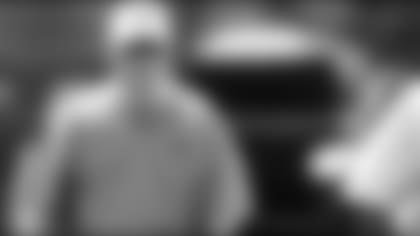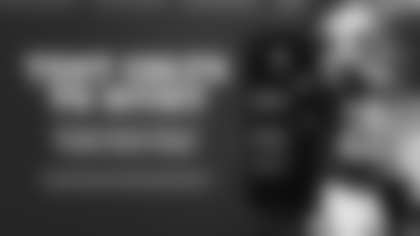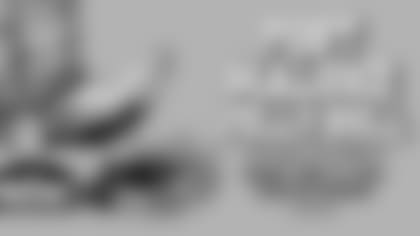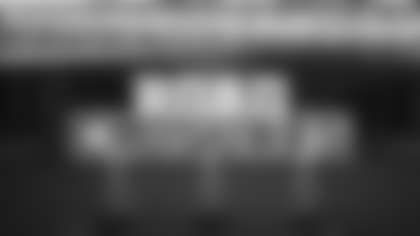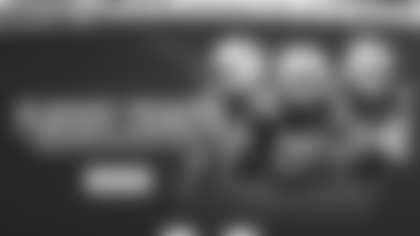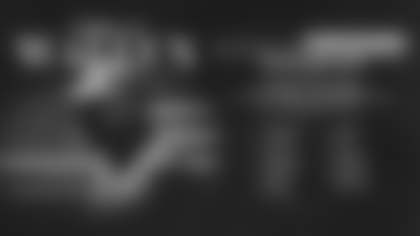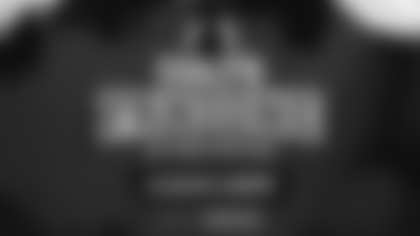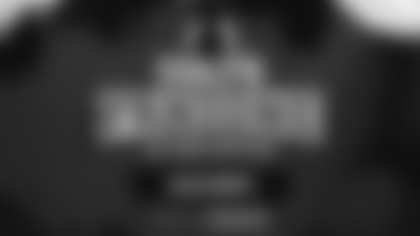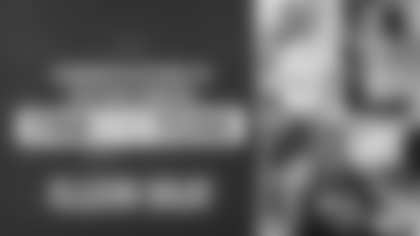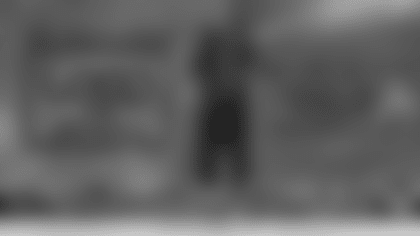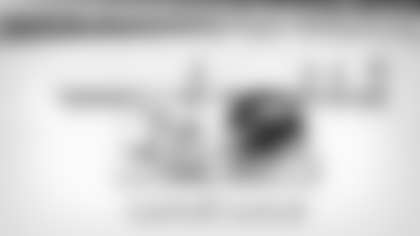Week 5: Colts at Texans
Bill Polian, in his 11th season as Colts president, has a resume unique in the NFL. One of two men to win NFL Executive of the Year five times, Polian in the 1980s built the Buffalo Bills into a four-time Super Bowl participant. In the mid-1990s, he built the expansion Carolina Panthers into a team that made the NFC Championship Game in its second season, 1996. Since joining Indianapolis in 1998, he built the Colts from a 3-13 team in 1997 and 1998 into one that has made the playoffs eight of the last nine seasons, including an AFC Championship Game appearance after the 2003 and 2006 seasons, AFC South titles in 2003, 2004, 2005, 2006 and 2007 and a Super Bowl championship following the 2006 season. Each week during the season, in The Polian Corner, Polian and Colts.com will discuss issues pertinent to the Colts and the rest of the NFL.
Question: You had a chance to watch games involving other NFL teams Sunday, a rarity for you during the season. Any thoughts?
A: I came away with some pretty interesting observations, you might say, in that I think I see our game changing in the National Football League. That was pretty obvious from what I saw Sunday. Now, most of that was NFC, but when you look at our division it's exactly the same way. We have become a power-running, play-action passing, defensive-oriented league, really. That's pretty much a sea change from the days of the Greatest Show on Turf and the West Coast offense of Bill Walsh, although they (the San Francisco 49ers) had a great defense to go along with it – the exception probably being (the) Dallas (Cowboys) and maybe the (New York) Giants in the sense that they're a little more wide-open offense, and of course the (New England) Patriots last year, although they have reverted this year. No one seems to know what the (New York) Jets are right now. They haven't really hit their stride yet, but clearly in the NFC and in our division it's power-running football and defense and kicking game. Not that we can't adjust to it. We can. I don't know if that's a good trend for the league or not. I guess the fans will tell us.
Q: Tennessee is leading the AFC South at 4-0. Have you seen enough of the Titans to know what they're all about?
A: Don't forget I said earlier that they were the team that no one was talking about but that everybody would be soon. It's amazing how little tape and how little preparation the people that speak on the pre-game shows really do. That's shocking when you hear some of the statements that are made, particularly from ex-players. You don't get an accurate picture in virtually any situation. Those that know football know Tennessee had a very good team last year. They were hamstrung by inefficiency at the quarterback position. (Titans Head Coach) Jeff (Fisher) would probably be the first to tell you that. In fact, he as much as said that recently. If anything, they got a lot better this year because they got (Chris) Johnson, who is a tremendous running back, a game-breaking running back, to go along with (running back) LenDale White, and (quarterback) Kerry Collins stepped in and does what Kerry Collins does. He wins football games and makes accurate throws and makes the right decisions and leads the team with his toughness and his grittiness. They are not a mirage. They are a very good team. They are the best team in this division right now, because they are healthier by a lot than we are. They are going to be tough to catch. Having said that, there's a long way to go. Everybody else in this division has their work cut out for them playing against them. I didn't forget, but should mention, their defensive line, which is maybe the best in football. They're an all-around good team. (Kicker Rob) Bironas has a great leg, so they can convert field goals when their offense stalls. Their defensive line dominates. Their offensive line – I would say if you're looking for the best-coached offensive lines in football – us, Tennessee and New England are right in there. Everything is there for them to be a good team. For Colt fans to think otherwise or for anybody in this building to think otherwise would be just way off the mark.
Q: The Colts' next opponent, Houston, is 0-3, but it's a strange 0-3 . . .
A: It's a strange 0-3. They had the interruption with Hurricane (Ike), which was a very difficult issue for them and for all of their families. They are also a much-improved football team. They played Jacksonville as close as they possibly could play them. It's a very competitive team and a very competitive division. We're going there. We're going to play with the roof open, so whatever elements are applicable will come into play. It's a grass field, so we very well could have a muddy track. Those things are all part of the game. Certainly, the weather will be hot. There's no question about that. Everything sort of falls in line for them – coming home and having the capability of being a contender. There are no two ways about that. The personnel is in place. They have good coaching. Their management and coaching is meshed, so they have added people who have really helped them on the personnel front. They're a very difficult opponent.
Q: The bye week this past week – did it come at the right time?
A: (Laughing) For sure it came at the right time. For one thing, we didn't get anybody hurt this week, which is kind of amazing given our track record, but everybody seems to be right on schedule. We'll know on Wednesday what we have in terms of complete health issues, but I think everybody who is expected to play will. That will be a first for us. That being the case, we have one more week to get our big people acclimated up front and hope that they can make a contribution against a team that I'm sure will run the ball a) because they want to and b) because until we prove we can stop it people are going to do it. We just have to go out there and recognize that every team in this league has some flaw or another. Some greater, some to a lesser degree, but everybody has flaws. No one is going to go undefeated. There's a long way to go. We have to recognize that and concentrate on the job at hand, which is only Houston and not worry about anything else. For sure not worry about anything that's written or said and just get on with the job of playing good, efficient football, which really we haven't done for 60 minutes yet this season.
Q: Do you expect many lineup changes coming out of the bye?
A: I wouldn't expect too many lineup changes. At the receiver position, we're in pretty good shape right now. We need to get (Roy) Hall back to get some depth there, but we're in pretty good shape at that position. On the offensive line, I think (rookie guard) Mike Pollak has a chance to be back this week (from a knee injury). If (veteran guard) Dan Federkeil can't go, that's just a one-for-one trade. Everybody else there is OK. (Center) Jeff Saturday came out fine. (Rookie center/guard) Jamey Richard is fine, so in that sense that group is pretty much as is. (Second-year left tackle) Tony Ugoh may be back, which would mean (veteran) Charlie Johnson would move back to guard. So, you'd have a little bit different alignment, but essentially the same lineup that we started the season with. At running back, thank goodness we've been fine and obviously at quarterback, Peyton (Manning) is back to where he was and that's a pretty good situation. For the first time since the opening game, all four tight ends will be healthy, so that's a plus for us. Dallas (Clark) came out of the hellacious shot that he took against Jacksonville in pretty good shape. On defense, both of the big guys (tackles Dan Muir and LaJuan Ramsey) are healthy and if they stay that way, they should be OK. Dan Muir is back off a sprained knee. (Safety) Bob Sanders is out, of course, until about the New England game (on November 2), but he's recuperating on schedule. No big issue there. (Linebacker) Tyjuan Hagler is a couple of weeks away from being back by statute. He can't come back until the sixth week because he's on the Physically Unable to Perform list, but he should be in good shape and ready to go the day he is eligible. So, that's in pretty good shape. Secondarily, other than Bob we're OK, so we'll be going into this game probably as healthy as we have been in quite some time.
Q: Bob Sanders had the knee scope at the same time he was out with a high-ankle sprain. Does the knee procedure lengthen the time he is expected to miss?
A: No, it doesn't at all. It was simply a cleanup to remove some loose bodies. It was done now, rather than at the end of the season, because the amount of time he was going to be out with the high-ankle sprain was going to be the same or longer. Why not do it? No surgery is routine and as the old saying goes, 'Routine surgery is only that which is done on someone else. If it's done on you, it's not routine,' but the bottom line is he'll be fine and there shouldn't be anything of any consequence coming out of it.
Q: Can you talk about defensive tackles Dan Muir and LaJuan Ramsey?
A: Daniel Muir is from the University of Connecticut and he was with Green Bay for two years. We claimed him on waivers at the cut to 53. He's about 6-feet-3, 315 pounds. He's pretty athletic despite that size. LaJuan Ramsey was with the San Francisco 49ers and we signed him as a free agent during the second week of the season because of (tackle) Ed Johnson's dismissal. As a result, he only has been with us a couple of weeks. He did play the defense at USC (Southern California) and he has some conversance with it, so it's a matter of getting used to specifics of our defense – terminology, that kind of thing. He's 6-feet-2 and about 310. Both fellows could stand to lose 10 or 15 pounds and they will do that over the course of time in our system, because of the way we practice. But I think both will be helpful to us in terms of taking reps, being able to stand in there and slug when we get in the kinds of games that we got in last week (against Jacksonville), and certainly will be very helpful once they get their feet on the ground and know exactly how we execute stunts, how we play certain blocking schemes – when they get that, and they're making fast progress on it, they'll be contributors, so it just takes a little while. I used the example last week that when (Anthony) "Booger" (McFarland) came to us (via trade from the Tampa Bay Buccaneers in 2006), it took about six weeks even though he was playing the exact same defense in Tampa just for him to feel comfortable with the people he was playing with and the little idiosyncrasies of the way we play. The same is true with them. They're going to get better. The graph will be up as time goes by.
Q: There has been some discussion since the Jacksonville game that wide receiver Anthony Gonzalez didn't get enough touches or that running back Dominic Rhodes didn't get enough carries. It's tough to get repetitions when the offense runs just 49 plays . . .
A: You don't really have a chance to rotate people in the way you'd like to. Field position plays a role in that. Clock plays a role in it. In a normal situation where you had 60 plays, it's likely that Gonzo and Dominic would have played all of those additional 11 plays. You get a lot more production from them. In this particularly case because Jacksonville had the ball for so long – which of course was by design and great credit to them for doing it – we had fewer offensive plays.
Q: The special teams seemed to do pretty well against Jacksonville . . .
A: I think it has been good. We've limited the returns. We kept (Chicago Bears returner Devin) Hester pretty much corralled and that's difficult to do. We didn't face a real challenge in Minnesota and then did a good job against an explosive rookie in Jacksonville. There never has been an issue with our field-goal kicking, our kickoff returns or our punt returns. They've been positive contributors to us throughout the years and continue to be. Witness the positive punt return that set up the winning field goal in Minnesota. We lost (returner) T.J. (Rushing), but I think we've replaced him. Bottom line is it's only been the kickoff coverage – and to a much lesser extent, the punt coverage – that has been a problem. Kickoff coverage essentially has been the problem and it looks like we're improving in that area. That's a real plus.
Q: The Colts recently signed a third quarterback. Talk about him, if you will . . .
A: The third quarterback is actually on the practice squad. It's David Greene out of the University of Georgia – a lefthander who we thought highly of in the draft and who we think has a pretty bright future. He was available, so we added him. Obviously, you always need the arm for practice purposes, but we think David has a future, so we're glad to have him.
Q: Is there any thought to the Colts' going to a faster-paced offense throughout the whole game?
A: I think if you ask (Colts Head Coach) Tony Dungy and if you ask (Offensive Coordinator) Tom Moore and if you ask Peyton Manning, they probably if they had their druthers would really want to step on the gas as much as we possibly could. The difficulty is and has been through the first three games that with all of the young offensive linemen – and in the first two games without Jeff Saturday in there – you have no ability to operate up-tempo, because in the first two games Peyton had to identify where the potential blitzes were coming from and help (center) Jamey Richard make the blocking calls. In this particular game (Jacksonville), which by the way is why we went right down the field in almost less than a minute at the end, Jeff was able to make those calls. When Jeff is in there, and the more experience we get for the offensive linemen – i.e., Tony Ugoh back and Charlie moving to guard – against the stunts and blitzes we have to pick up – and everyone is blitzing us until you prove you can't and until you can prove you can burn them with big plays and that's all part and parcel with how the referees call the game as well – it will be difficult to go as much up-tempo as we like, but it will get better as the season goes on because our offensive guys will feel more comfortable. By the way, Charlie at left tackle against Jacksonville – terrific job. All he needs is the opportunity to prepare and be ready and he plays great.
Q: Did you speak to the league office regarding the officiating during the game against Jacksonville?
A: We did call the league office. We both called and sent our officiating critique in. We got the results back. I think it's fair to say the only people less popular than Wall Street executives in this building are NFL officials. That tells you where we were, but bottom line: there isn't a darned thing you can do about it. You have to adjust to how the officials call the game. Some crews call it differently than others. There is a movement afoot in the league given voice by (Dallas Cowboys Owner) Jerry Jones when he said – and he was speaking about (referee) Ed Hochuli, although I'm not – 'the fewer fouls the better.' People repeat that mantra. The problem with that philosophy – and I'll be the first to tell you I have great respect for Jerry Jones; incredible respect for him; he's not only terrific owner, but a good person and I enjoyed serving with him on the Competition Committee and he, unlike some other people who speak on this subject, knows what he's talking about – but the problem with the let-everything-go-philosophy is that players then take the game into their own hands. Two things happen. No. 1, the players take the game into their own hands. Because no one likes to be held. No one likes to be grabbed by the jersey. No one likes to be grabbed by the face mask or hauled down by the jersey. None of those things are pleasant for the people who are the victims. If the officials sit by and just let that go, then the people who are fouled are going to retaliate. I think you're seeing more of that throughout the league and that's not good. That is not good for the game. We all know policemen are on the beat to prevent the wrongdoers, the small minority of wrongdoers, from doing harm and damage to those who abide by the law. That's what officials are out there to do. They're out there to create a level playing field, to make sure people who abide by the rules have a fair chance to win and that people who don't abide by the rules are penalized for it. If you don't do that, then you empower those that don't abide by the rules and you tilt the playing field. In some cases, that has happened and that's the problem with that philosophy of let everything go. Now, I'd be the first to tell you that I don't like a lot of flags. The fact of the matter is the mantra of no fouls or less fouls is harmful to the game in my humble opinion. When a foul is committed, you have to throw a flag and you have to enforce it. You can't be selective because when you are selective, you do harm to the people who consistently avoid fouls. In the years that Don Shula was leading the Miami Dolphins and winning the most games of anybody in the National Football League – and in the time I was in Buffalo with (Hall of Fame Head Coach) Marv Levy and playing the Miami Dolphins it seemed every year for all the marbles just as we've done with the Patriots here for a long period of time – and with Bill Parcells in New York and with Bill Belichick in New England and with many other coaches whose names are synonymous with success, there was always the philosophy that the least-penalized teams were the best teams. That is not the case any longer and my theory is it has to do with penalty enforcement. In short, people are committing as many fouls. There just aren't as many being called and that tilts the field in the wrong way in my opinion. That's not a criticism of officials. It's a disagreement with an officiating philosophy that has been espoused publicly by many people and privately by others. As to Ed Hochuli, you're probably going to be shocked by this, but I think Ed Hochuli is one of the best officials in the National Football League. I think his crew does a good job week in and week out. They're very consistent. You know what kind of a game you're going to get from them. They call what's there, by and large. He runs the game in a business-like fashion. Maybe I can get fined for being positive about the officials, I don't know. The bottom line is he missed a call (early this month). That's going to happen from time to time, but that's different from missing six in a ball game. That's different than not calling anything. It was very public and it's like everything else in life these days. The thing that's public and out there in the open for everybody to see is many times not the issue. It's what you don't see that's the issue. The bottom line is Ed Hochuli enforces the rules as written. You know what you're getting from him every week. That's all you can ask from an official. Just give us a level playing field. Let us know the rules are what we believe them to be. That's all we can ask. If we don't do the job, then it's on us.
Q: And isn't it the case that the more you allow retaliation, the more players get injured?
A: There is a correlation and I'll tell you why. When you don't penalize illegal tactics, the only way to retaliate is through illegal tactics. The more illegal tactics you use, the more chance for injury. They are, after all, illegal in the first place for a reason – largely because we're always on the Competition Committee concerned about the safety of players. When you have chop blocks – which are on the rise in the National Football League – when you have grabbing of jerseys and grabbing of face masks and things of that nature, you're going to cause injury. When you don't call fouls, then players are going to retaliate. They can't help but do that. They're not going to let themselves be treated that way. They'd be crazy to, because they're livelihood is at stake. You then get – as I said before – illegal tactics begetting illegal tactics and that's not good for the game.
Q: Did the NFL apologize for the situation?
A: I can assure you there was no apology made. That's probably all I should day, because the Commissioner (Roger Goodell) sent a memo out Monday reminding everyone of the integrity of those telephone calls and communications that take place. My focus right now is not on that game, but on the philosophy of officiating. There is a philosophy basically that says, 'Call Nothing,' or, 'Call Only That Which is Blatantly Obvious.' I think in the end what that does is hurt the game in the long run. It tilts the playing field far too much in favor of those that break the rules and use illegal tactics and at the same time causes players to engage in tactics in retribution for fouls that they would otherwise not do. That brings the level of play and the level of discipline down. The NBA has done away with that. The National Hockey League has done away with that philosophy. They have blown more fouls in the NBA and they have increased the number of officials and been very strict about the restrictions – the so-called neutral-zone trap and holding and grabbing of skill players – in the National Hockey League. The NHL and the NBA rightly recognize that fans come to see the great athletes perform great athletic feats. Unfortunately, I think we're getting away from that and I think we need to take a hard look at the consequence of the idea that you should throw less flags.
Q: It seems as if the acquisition of defensive tackles has been the Colts' Achilles Heel forever . . .
A: I would differ in terms of it being our Achilles Heel forever, because the year we won the Super Bowl (2006) and in the year we signed Corey Simon (2005), when we were healthy in both instances we stopped the run very well. Our problem this year is we do not have two Pro Bowl caliber defensive tackles playing for us. That's through no fault of our own. We had two, Quinn Pitcock and Ed Johnson – Quinn, a third-round draft choice, and Ed a collegiate free agent – who played very well for us last year and of course, we were ranked second in the league in defense last year. We don't have either of those men there now through no fault of our own. It's one of those situations where we're going to have to try to upgrade that position either through making the players we have here better or trying in the offseason probably to acquire better players, although I'm certainly not finished acquiring good players if any are available. The problem with free agency is this: No. 1, in our defense you have to find the right fit, which is an athletic big man – a guy who's 300 pounds who can run and change direction and those fellows rarely, rarely become free agents. Secondly, you want to get the kind of player who fits in your system in terms of how he comports himself on and off the field, his professionality in the building, his professionality in practice, etc., etc. Those kinds of players rarely come on the market in free agency. In my opinion, except for a select few players, free agency is a fool's errand and I think that's pretty much been proven. You overpay for really what amounts to average or below-average performance. We don't believe in it. I know there are people who do. More power to them, but we don't think there's a good economic value in free agency. Now, we have done pretty well with (kicker) Adam Vinatieri and we did OK with Corey Simon. The fact that his career ended because of an illness is no one's fault. And we did OK with Booger McFarland, who came via trade, but would be the same type of person. Bottom line, we don't have any of those fellows now. We're going to have to get them. I don't preclude getting them in free agency, but I don't hold out a lot of hope, either, because the free-agency pool is not filled with the kinds of players we are looking for.
Q: Discuss Houston, if you will . . .
A: They're a very good offensive football team. Steve Slaton is (Tennessee rookie running back) Chris Johnson. He is a home-run hitting sub-4.5, 195-pound running back who if he gets going downhill is gone. He's very different from the two (running backs) at Jacksonville, who are a little bit different style. He represents a big threat. One of the things we have to do defensively and one of the things we have not done defensively well is to limit big plays. That means assignment integrity and gap integrity. We can't have nine guys going right and one guy going left, because if they hit that gap as they usually do when those things happen, then it's a home run. If we do that, we will go a long way toward solving our, 'problem with the running game.' We have been really pretty good when you boil it all down except for the big plays, but that's unacceptable. We have to eliminate the big plays. You can't rely on Bob Sanders to do it. First of all, he's not there and second of all it's not right to reply upon him to do it. You have to make sure that everybody is in the right place at the right time all the time. If we do that, we will not allow big plays, but if we get collapsed to the point where we're driven seven yards past the hole and one tackler has to defend a hole that's five-and-half-to-six-yards wide, that's not a good matchup – not against Steve Slaton, that's for sure. By the same token, as I said, when one guy goes to the wrong gap and nine guys go to the right gap, that can't happen. We have to make sure that's correct. We have to make sure we're communicating correctly on the calls so there is no discrepancy over that. If we get that done, I think we'll play pretty good defense.


